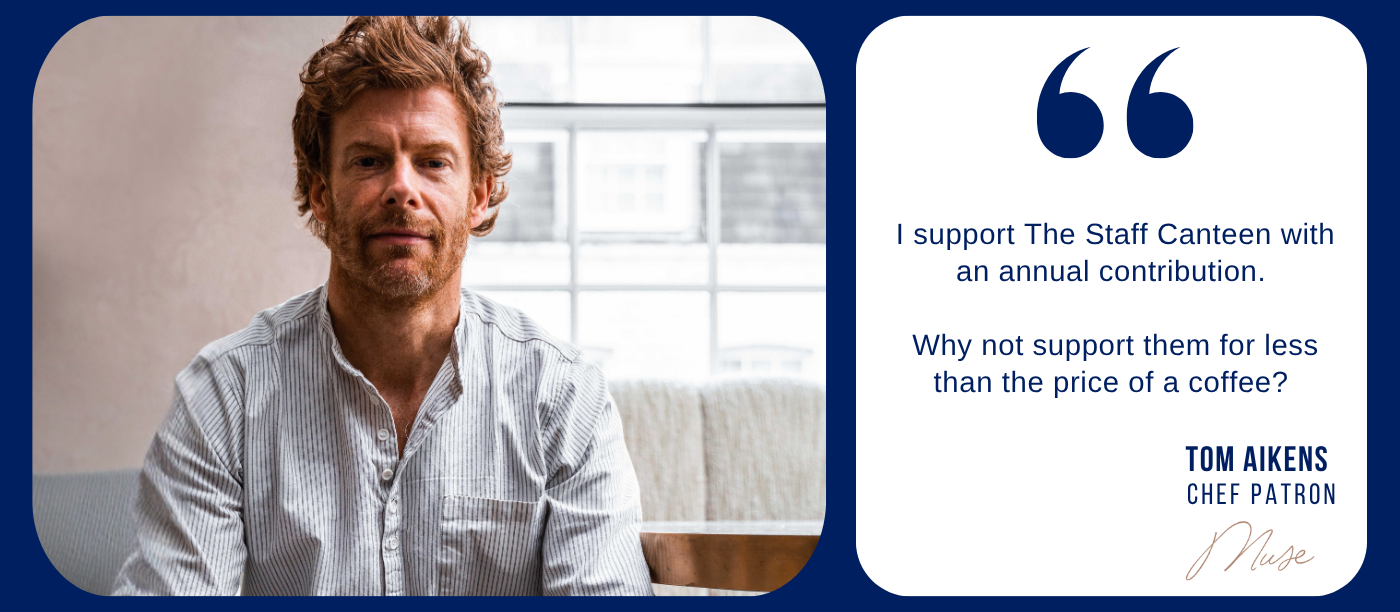- Wareing
- Larder – Jason Atherton
- Pastry – Simon Jenkins
I don’t think so. I think the applicants are younger but I do think people are less willing to come into this type of environment further into their careers because it does take a lot to adapt to it and not everyone can. It’s a place where people come to learn and then move on, it’s not a place where people stay as long as I have, but that’s a natural progression.
You relaunched Marcus last year, what were the main changes and why?
We’ve brought the food and the restaurant onto the same level. The food since Marcus took over five years ago has changed a lot. We really modernised the room to fit in with the lighter style of food, and new service style and in doing so it has made it more accessible at lunchtime. It always has been a great restaurant for dinner but now it is on a whole new level, it looks fantastic when the candles are lit and the lights are low, the energy and buzz in the room is amazing.
Before the relaunch lunch time was slightly missing that edge we had on dinner but now we have it across both. The Chef’s Table is also a slightly different experience now; there is a lot more space which gives us flexibility with what we can offer and how we can interact with our guests.
 Is that something you enjoy, having the interaction from the Chef’s Table?
Is that something you enjoy, having the interaction from the Chef’s Table?
It’s great – especially on a weekend - we have some fantastic groups of really interesting people. People are there to relax, celebrate and enjoy themselves and it’s so nice to see that. As a chef you don’t always get to see the enjoyment and the pleasure that our food gives people, that makes it all worthwhile.
People love seeing their food being put together and there’s a lot more interest in that now, watching the chefs working on their dishes is a great thing for them to see. We don’t work any differently, if it’s a quiet, calm night that’s what they get but if it’s a busy, stressful night and things aren’t quite going to plan then they see that as well.
You currently have a spring menu, tasting menu and à la carte menu. Do you have a favourite?

I think the tasting menu at the moment is really good, one of the best ones we’ve had. I’m really proud of all those dishes and we’ve put a lot of effort into this menu. We’ve pushed up another level and made it more interesting. I also think the taste of spring menu is awesome, if I was coming for lunch it’s definitely what I would be having.
What would you say is your speciality and what dishes do you most enjoy cooking?
We try and do a lot of cooking of whole joints for the Chef’s Table if we have the right number. I think you get the best out of the produce when you cook it as a whole joint. It’s great to be able to showcase the whole piece of meat like that.
Your menu is seasonal, how easy is it to get hold of those ingredients in central London?
London is great and we are great supporters of British produce and use it as first choice wherever we can. Asparagus comes direct from the farm twice a week, so we are really lucky as London is a bit of a hub and we are able to get hold of pretty much everything. Our suppliers work really hard and every year they try and introduce new ingredients and new sources of inspiration. We cannot ignore that we have Europe on our doorstep though, we have some fantastic suppliers bringing in stuff from Spain, France and Italy.
So what’s next for you?
I’m really happy here. There are still things we want to do and this was sort of the warm up year. There are more projects coming up for the restaurant and I want to keep pushing it forward. Daniel Greenock, our restaurant manager, Marcus and I want us to continue to be right up there at the top with the other great restaurants.
If you like the sound of working with both Marcus and Mark they're currently recruiting over on our jobs board here



















